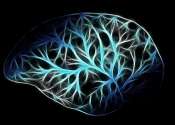Direct toxic action of beta-amyloid identified
Hyperactive neurons in specific areas of the brain are believed to be an early perturbation in Alzheimer's disease. For the first time, a team from the Technical University of Munich (TUM) was able to explain the reasons ...
Aug 9, 2019
0
327








